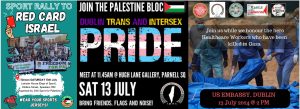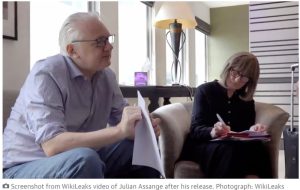Writing in recent days, historian Simon Schama reminded us that Napoleon is said to have estimated that the success of any campaign is one-quarter attributable to numbers and material, and three-quarters to morale. It is a lesson Russia’s latter-day emperor Vladimir Putin would do well to take on board as he ploughs on with his ill-conceived and brutal assault on Ukraine.
Putin has never gained control of the narrative, the pillar of morale domestically and within his army. At home, thousands have braved police truncheons and arrest – 4,800 on Sunday – to expose the palpable nonsense that the war is simply a “military operation” against Nazis and that a grateful Ukraine is welcoming Russia’s troops as friends. And as casualties mount, and unprecedented sanctions begin to bite, the initially passive support of a population, whose access to independent news has been muzzled by the regime, will turn to scepticism and then outright opposition. News will out.
In Ukraine, the calculation that a quick surgical strike would suffice to take the country has been bogged down in the winter mud on the roads north of Kyiv and in the face of a surprisingly well-armed, trained and – more crucially – motivated Ukrainian army and a risen people. In some cases disconsolate Russian conscripts have surrendered, confessing that they had no idea where they were. Or why they were there. Others have looked out bemused from their tanks as unarmed civilians barred their way in “captured” cities.
The huge imbalance in firepower means Putin may still win out. The battle may last months at a great cost in lives. But it could be a pyrrhic victory – long-term occupation and control will be hugely expensive in manpower and cash, if not impossible. It has been estimated that each day of the invasion is costing Russia more than $20 billion, and cash is already running short.
Putin has warned Ukraine’s friends in the west that any attempt to provide direct military assistance will be seen as an act of war, and there is an understandable reluctance to trigger what some have warned would be world war three. A wider conflagration would be costlier in lives than the current bloody conflict and raise the prospect of a nuclear confrontation.
But Putin has also suggested that supplying fighter planes to Ukraine, currently under discussion in Nato, or allowing Ukraine’s jets sheltering in Romania to fly missions into Ukraine, would also constitute an act of war by Nato. These are his red lines that Nato may consider are necessary to cross. And, should the occupation be successful, will Ukraine’s neighbours deny displaced fighters bases in neighbouring Nato member states from which to launch attacks on the occupiers? Direct Nato-Russia conflict remains a real possibility. The stakes could not be higher.
Writing in recent days, historian Simon Schama reminded us that Napoleon is said to have estimated that the success of any campaign is one-quarter attributable to numbers and material, and three-quarters to morale. It is a lesson Russia’s latter-day emperor Vladimir Putin would do well to take on board as he ploughs on with his ill-conceived and brutal assault on Ukraine.
Putin has never gained control of the narrative, the pillar of morale domestically and within his army. At home, thousands have braved police truncheons and arrest – 4,800 on Sunday – to expose the palpable nonsense that the war is simply a “military operation” against Nazis and that a grateful Ukraine is welcoming Russia’s troops as friends. And as casualties mount, and unprecedented sanctions begin to bite, the initially passive support of a population, whose access to independent news has been muzzled by the regime, will turn to scepticism and then outright opposition. News will out.
In Ukraine, the calculation that a quick surgical strike would suffice to take the country has been bogged down in the winter mud on the roads north of Kyiv and in the face of a surprisingly well-armed, trained and – more crucially – motivated Ukrainian army and a risen people. In some cases disconsolate Russian conscripts have surrendered, confessing that they had no idea where they were. Or why they were there. Others have looked out bemused from their tanks as unarmed civilians barred their way in “captured” cities.
The huge imbalance in firepower means Putin may still win out. The battle may last months at a great cost in lives. But it could be a pyrrhic victory – long-term occupation and control will be hugely expensive in manpower and cash, if not impossible. It has been estimated that each day of the invasion is costing Russia more than $20 billion, and cash is already running short.
Putin has warned Ukraine’s friends in the west that any attempt to provide direct military assistance will be seen as an act of war, and there is an understandable reluctance to trigger what some have warned would be world war three. A wider conflagration would be costlier in lives than the current bloody conflict and raise the prospect of a nuclear confrontation.
But Putin has also suggested that supplying fighter planes to Ukraine, currently under discussion in Nato, or allowing Ukraine’s jets sheltering in Romania to fly missions into Ukraine, would also constitute an act of war by Nato. These are his red lines that Nato may consider are necessary to cross. And, should the occupation be successful, will Ukraine’s neighbours deny displaced fighters bases in neighbouring Nato member states from which to launch attacks on the occupiers? Direct Nato-Russia conflict remains a real possibility. The stakes could not be higher.






